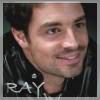Post by Naj on Dec 15, 2006 12:48:51 GMT -5
CBS Corp. plans to revive CBS Records — a vestige of the glory days of the now-troubled music industry — with an eye toward the Internet age.
In contrast to the lavish excesses of the music business of the 1970s and 1980s, the new incarnation of CBS Records, to be unveiled today, will start out small. CBS plans to sign a handful of songwriters whose music will be incorporated into shows on the CBS broadcast network, the youth-oriented CW television network and the company's fledgling digital platforms.
The move represents CBS Chief Executive Leslie Moonves' desire to turn CBS into a full-fledged media enterprise. It currently owns television networks, TV stations, a TV production studio, radio stations, billboards and a publishing house.
CBS Records has a storied history as the former home of such artists as Frank Sinatra, Bob Dylan, Tony Bennett, Miles Davis, Billy Joel and Bruce Springsteen.
CBS is betting that it can exploit the weakness in the music industry by signing recording artists who are hungry for support and promotion. CBS could benefit from an additional revenue stream and by reducing the money it spends to license songs for its TV shows.
"Music is a very essential part of the television production business," said Nancy Tellem, president of the CBS Paramount Network Television Entertainment Group. "We felt this was the perfect time to restart our CBS Records label."
Tellem declined to say how much CBS spends for the rights to use the more than 2,000 songs featured each season during prime time on the CBS broadcast network. But she said that "studios are spending millions and millions of dollars each year to license these songs."
Those costs have been on the rise in recent years as record labels have rushed to tap into the promotional power of TV, particularly as music kingmaker MTV has aired fewer music videos and large radio companies typically play only a roster of nationally known musicians.
Shows such as Warner Bros.' "Gilmore Girls" and "One Tree Hill" have long incorporated music from independent artists to lend an edgier, more contemporary vibe. CBS' "Cold Case" effectively uses music from different eras and artists such as Tim McGraw to bring to life old, unsolved crimes.
CBS plans to market and sell its artists' music via digital downloads, such as the iTunes music store and its own website, at www.cbsrecords.com . It plans to contract with a third party to make compact discs to sell in retail outlets. Songs also will get airplay on CBS Radio stations, although Tellem noted that company executives were aware of federal payola laws that prevent stations from taking payment in return for playing songs.
In the past, networks would buy music rights to cover a program's broadcast run. Now that shows are available over the Internet, networks must pay extra for those digital rights.
"It's been very expensive for networks to get access to this content, and not only access, but getting clearance to use the music again in different digital platforms," said Richard Greenfield, a media analyst with Pali Research. "Programmers have had struggles clearing the digital rights, but if a network were to own the content, then it would have the ability to exploit it across all platforms."
For CBS, the launch comes at a perfect time. Sales of digital downloads of music are growing and TV producers want to use more music in their shows. CBS also has been looking for ways to increase revenue and become a bigger Internet player.
Although sales of music albums in the U.S. declined by 4.2% in the first six months of 2006, the drop was largely offset by a 77% increase in digital sales.
CBS has signed its first three artists: P.J. Olsson, a recent Grammy Award nominee who previously was signed by Columbia Records; new artist Will Dailey; and independent rock band Señor Happy.
"I jumped at the chance" of being signed by CBS, Olsson said in an interview. "I like the fact that they are not starting the largest record label around, but a cool label that could market artists in a different way."
Olsson said he wasn't worried about corporate mandates to write music for such shows as "King of Queens."
CBS Executive Vice President Jack Sussman said the company would continue to do business with major labels and use their stars. "We're not going to be telling producers whose work they have to use," he said.
It's been almost 20 years since CBS Records was part of the CBS empire. The company sold CBS Records to Sony Corp. in a $2-billion deal in 1988, when CBS was shedding assets to focus on a "broadcast-only" strategy. Sony stopped using the name "CBS Records" in the early 1990s, which made it easy for CBS to reclaim the name, Tellem said.
article
In contrast to the lavish excesses of the music business of the 1970s and 1980s, the new incarnation of CBS Records, to be unveiled today, will start out small. CBS plans to sign a handful of songwriters whose music will be incorporated into shows on the CBS broadcast network, the youth-oriented CW television network and the company's fledgling digital platforms.
The move represents CBS Chief Executive Leslie Moonves' desire to turn CBS into a full-fledged media enterprise. It currently owns television networks, TV stations, a TV production studio, radio stations, billboards and a publishing house.
CBS Records has a storied history as the former home of such artists as Frank Sinatra, Bob Dylan, Tony Bennett, Miles Davis, Billy Joel and Bruce Springsteen.
CBS is betting that it can exploit the weakness in the music industry by signing recording artists who are hungry for support and promotion. CBS could benefit from an additional revenue stream and by reducing the money it spends to license songs for its TV shows.
"Music is a very essential part of the television production business," said Nancy Tellem, president of the CBS Paramount Network Television Entertainment Group. "We felt this was the perfect time to restart our CBS Records label."
Tellem declined to say how much CBS spends for the rights to use the more than 2,000 songs featured each season during prime time on the CBS broadcast network. But she said that "studios are spending millions and millions of dollars each year to license these songs."
Those costs have been on the rise in recent years as record labels have rushed to tap into the promotional power of TV, particularly as music kingmaker MTV has aired fewer music videos and large radio companies typically play only a roster of nationally known musicians.
Shows such as Warner Bros.' "Gilmore Girls" and "One Tree Hill" have long incorporated music from independent artists to lend an edgier, more contemporary vibe. CBS' "Cold Case" effectively uses music from different eras and artists such as Tim McGraw to bring to life old, unsolved crimes.
CBS plans to market and sell its artists' music via digital downloads, such as the iTunes music store and its own website, at www.cbsrecords.com . It plans to contract with a third party to make compact discs to sell in retail outlets. Songs also will get airplay on CBS Radio stations, although Tellem noted that company executives were aware of federal payola laws that prevent stations from taking payment in return for playing songs.
In the past, networks would buy music rights to cover a program's broadcast run. Now that shows are available over the Internet, networks must pay extra for those digital rights.
"It's been very expensive for networks to get access to this content, and not only access, but getting clearance to use the music again in different digital platforms," said Richard Greenfield, a media analyst with Pali Research. "Programmers have had struggles clearing the digital rights, but if a network were to own the content, then it would have the ability to exploit it across all platforms."
For CBS, the launch comes at a perfect time. Sales of digital downloads of music are growing and TV producers want to use more music in their shows. CBS also has been looking for ways to increase revenue and become a bigger Internet player.
Although sales of music albums in the U.S. declined by 4.2% in the first six months of 2006, the drop was largely offset by a 77% increase in digital sales.
CBS has signed its first three artists: P.J. Olsson, a recent Grammy Award nominee who previously was signed by Columbia Records; new artist Will Dailey; and independent rock band Señor Happy.
"I jumped at the chance" of being signed by CBS, Olsson said in an interview. "I like the fact that they are not starting the largest record label around, but a cool label that could market artists in a different way."
Olsson said he wasn't worried about corporate mandates to write music for such shows as "King of Queens."
CBS Executive Vice President Jack Sussman said the company would continue to do business with major labels and use their stars. "We're not going to be telling producers whose work they have to use," he said.
It's been almost 20 years since CBS Records was part of the CBS empire. The company sold CBS Records to Sony Corp. in a $2-billion deal in 1988, when CBS was shedding assets to focus on a "broadcast-only" strategy. Sony stopped using the name "CBS Records" in the early 1990s, which made it easy for CBS to reclaim the name, Tellem said.
article




















